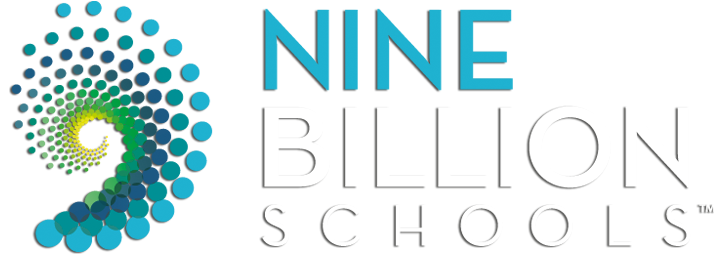Guest Blog: A Student’s Perspective on the 9 Billion Schools Movement
By: Erin Kelley
As a business and psychology student, I wasn’t sure what to expect when I took a marketing co-op focused in graphic design at an architecture firm. I’ve certainly required specific lessons and my colleagues have tailored their help to fit my needs. It’s evident that I have a different skillset (no better or worse) than previous co-ops; and I’m sure the next co-op will also present original skills and challenges. It’s an unconventional approach to a summer internship, but it’s highly personalized to my career goals.
SHP Leading Design modeled its office after the 9 Billion Schools vision of life-long, life-wide, and life-deep, personalized learning. It’s a perfect example of workplace learning and I’m incredibly grateful for this experience. I could list all of the skills I’ve learned here, but you would lose interest and my fingers would start to cramp before I could finish. Instead, I’d like to take this opportunity to give my take on the personalized learning movement.
9 Billion Schools is a call to action – a voice begging policy makers, teachers, superintendents, and parents to reform and individualize education. It’s inspiring to watch people passionately fight for the advancement of others, and I stand behind all of 9 Billion School’s work thus far. I agree that education isn’t one-size-fits all, and that (much like my internship) it needs to be customized to the individual. However, in my not-so-expert opinion, I think something was forgotten.
Where is the call to action to students? I’ve watched my colleagues bend over backwards to make me successful, but if I didn’t seek out this individualized, unconventional experience, it wouldn’t be happening. Adults can fight and fight and fight for the advancement of student education; but if we as students don’t make our own education a priority, we are wasting their efforts. It’s time to join the conversation and fight alongside 9 Billion Schools, and those likeminded, to reform our education.
I haven’t had the standard learning experience. In grade school, I bounced between tutoring, honors classes, and gifted coursework. These were engaging; they helped me to think more creatively and begin problem solving at a higher grade-level, but I was placed into these classes based off test scores. I didn’t have much of a say in the matter. It wasn’t until my freshman year of high school that I sought to personalize my schooling.
During my second trimester, I began struggling with an anxiety disorder and panic attacks, often triggered by long lectures, sitting for long periods of time, and hands-off “learning” that too easily allowed my mind to slip. School wasn’t working for me. I wasn’t learning, and my grades started to fall. I knew something needed to change.
I scheduled a meeting with my counselor and my mom to discuss a way to keep me engaged in school. By the end of the meeting, I had a customized 4-hour school day that alternated between online, in-class, and at-home learning. That year, I finished with straight A’s and found my passion with graphic design.
Tweaks to my schedule were made each semester, and I found myself constantly working with teachers to make sure I would have a successful experience. My senior year, I begged to be added to yet another graphic design class so that I could create an independent study in vector art. I also advocated to merge the school store and the school graphic design business to promote, what I now know is called, project based learning.
At University, I changed colleges, majors and coursework until I found a combination I was passionate about and that allowed me to succeed. I studied abroad and am now enrolled in a cooperative learning experience. My education has been everything but traditional.
I’m fortunate to have parents that pushed me to take reign over my education. I’m lucky to have the financial stability to navigate college and possibly take a longer route. But the options that were, and are, available to me need to be available to all students. Too often the quality of a student’s education relies primarily upon the family’s socioeconomic status. This sort of student driven, personalized experience shouldn’t be limited to high-income suburban areas. I realize I am fortunate and have what some may consider better resources at my disposal. However, regardless of my financial or social situation, my personalized learning started with something we are all capable of doing. I asked. I made my needs known and prioritized my learning.
So I want to add to 9 Billion School’s call to action.
Fellow students and lifelong learners, make your learning a priority. If you value a well-rounded education; if you value your daily work; if you value your curiosity; if you value your happiness, make it a priority. Advocate for yourself and your fellow learners. Demand an education worthy of you. You deserve it; and sometimes, all you have to do is ask.
Erin Kelley is a marketing co-op at SHP Leading Design and a student at the University of Cincinnati.





